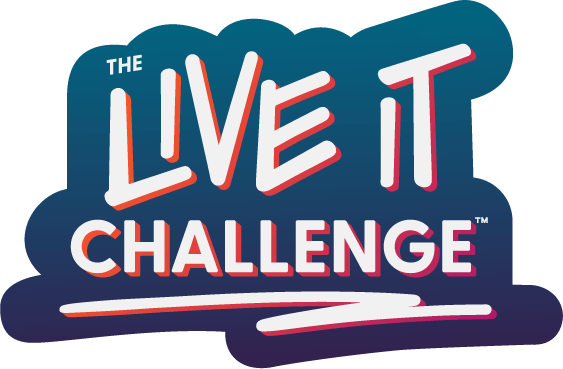Can a teacher in a public school display a personal Bible on a desk? What about answering a student’s questions about faith or the Bible?
At Focus on the Family, we received many questions like these during Bring Your Bible to School Day, our nationwide religious-freedom event for students.
A great deal of confusion exists over whether Christian educators can openly acknowledge their personal faith in the public education system. That’s because our nation’s courts have often rendered opinions on teachers’ rights that vary from case to case, rather than creating a clear-cut standard.
Generally speaking, students in public schools enjoy powerful protections for their religious-freedom and free-speech rights. Adults, on the other hand, are much more limited since they are government employees. As Alliance Defending Freedom puts it, public school teachers “are both individual citizens and agents of the state.” So the manner in which First Amendment protections apply to them is “somewhat unique.”
Below, we’ve provided a Q&A with general tips for teachers.
Can teachers respond when a student directly asks them about their faith or spiritual beliefs?
In general, teachers can respond when a student directly asks them a question about their personal beliefs. But teachers can get into sticky situations if they use the questions to begin giving what amounts to a church sermon to the entire class. That’s why it’s best to keep the answer focused on the exact question the student asked.
Teachers can also run into claims—especially when very young students are involved—that it wasn’t clear whether they were explaining their personal beliefs or those of the school. So it’s also a good idea for teachers to preempt their answers with a clear statement that they are expressing their personal perspectives.
Can teachers pray or do Bible studies with other teachers?
Teachers can engage in religious-freedom activities with other adult educators before and after school. This can include after-school Bible study and prayer groups for teachers or the distribution of invitations to religious-themed community events among educators (if the school already allows teachers to distribute flyers to one another about community related activities). The U.S. Department of Education itself issued a memorandum acknowledging this, which stated that, “Before school or during lunch, for example, teachers may meet with other teachers for prayer or Bible study to the same extent that they may engage in other conversation or nonreligious activities.”
Can teachers give factual explanations of Christianity and/or the Bible in their classrooms?
Yes, teachers can provide classroom instruction about Christianity and the Bible in a way that meets state academic standards and related curriculum requirements, especially when doing lessons about history, culture or literature. But keep in mind that teachers must address these topics in an objective and purely educational manner—i.e., it must be academic, not devotional.
Did you know that some state academic standards actually encourage instruction about Christianity? For example, California sixth graders are expected to note “the origins of Christianity in the Jewish Messianic prophecies, the life and teachings of Jesus of Nazareth . . . and the contribution of St. Paul the Apostle to the definition and spread of Christian beliefs.” In Massachusetts, seventh grade students are expected to describe “the origins of Christianity and its central features.” Gateways to Better Education has more excellent resources on references to Christianity or religion in state academic standards.
The U.S. Supreme Court has also affirmed that the “Bible may constitutionally be used in an appropriate study of history, ethics, comparative religion or the like” (Stone v. Graham, 1980). And even in its infamous ruling against adult-led Bible reading in public schools (Abington v. Schempp, 1963), the Supreme Court acknowledged “that the Bible is worthy of study for its literary and historic qualities. Nothing we have said here indicates that such study of the Bible or of religion, when presented objectively as part of a secular program of education, may not be effected consistently with the First Amendment.”
Can teachers put their personal Bibles on their desks?
This is one of those questions that can be answered in two ways—whether teachers should have that right or whether consistent court rulings have granted them that right. The Alliance Defending Freedom has stated that “there’s no legitimate basis for public schools to prohibit employees from having Bibles at their desks for their own personal use.”
Previous legal cases
Unfortunately, though, when you look at how cases have played out in court, the answer seems to differ according to the facts in each individual case:
- According to both a federal district and appeals court, mandatory prayers occurring in an Arkansas school district crossed the line into a constitutional violation—while a Bible sitting on the superintendent’s desk did not. The “Bible and framed scripture verses in [the superintendent’s] office . . . were protected by the first amendment’s free speech and free exercise clauses.”
- Likewise, in 2012, a Texas district court cited the above case and stated that teachers’ personal religious items, such as crosses on their desk, did not violate the constitution. “There was no danger of a high school student getting the wrong impression that the District was promoting religion when a teacher displayed a cross next to her other family, vacation, or other personal mementos any more than having a family photo on the teacher’s desk proves that the District promotes procreation or going skiing.”
- But more recently, in 2014, a teacher lost a lengthy court battle to fight his termination after displaying Christian-themed materials in his classroom, including a Bible on his desk. The case was complicated by the fact that several verbal and printed expressions were at issue, not simply the Bible on his desk. While the Ohio Supreme Court judges upheld the termination, they also pointed out that the school district’s “order for [the teacher] to remove his personal Bible from his desk was neither reasonable nor valid; the order infringed on . . . free-exercise rights without justification.” But another judge (who wrote a concurring opinion in the case) thought that the school did have the right to require the teacher to keep his Bible out of sight in a drawer.
So, what does this mean?
So what does all this mean for teachers? When it comes to deciding whether or not to display a Bible on a desk, it’s prudent for teachers to follow the school administration’s policy. If a teacher is feeling compelled to test the waters in a gray area that may go beyond that policy, it’s absolutely crucial to seek the advice of competent legal counsel beforehand.
What if a teacher wants to support students who are engaging in religious-freedom activities or event?
Perhaps the best way teachers can be supportive is to recognize and allow students’ free-speech and religious freedom activities. A “fast facts” sheet explaining students’ rights is available in the “For Students” section. A teacher can also show support by volunteering to serve as a faculty sponsor for student-led Christian clubs. (Many schools require student clubs to have a sponsor.) But when it comes to promotional efforts like putting up posters or making announcements, all of those efforts should be initiated and led by students. Likewise, it’s up to students to initiate the creation of the Christian club and then organize and lead the activities.
I want to encourage Christian educators in public schools: You are likely having far more of an impact than you realize, as demonstrated by multiple Focus on the Family listeners who shared their stories on our broadcast (see transcript). By simply modeling the love of Jesus to a child whose self-esteem has hit rock bottom or by exhibiting the fruit of the Spirit consistently through your personal actions in the classroom, you also are letting “your light shine before others, so that they may see your good works and give glory to your Father who is in heaven,” (Matt. 5:16).
Originally published by The Ethics and Religious Liberty Commission















